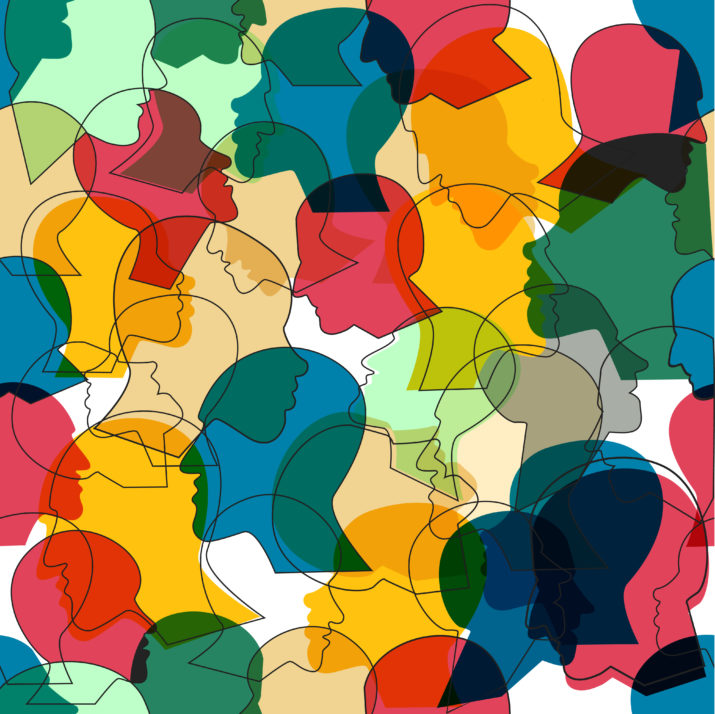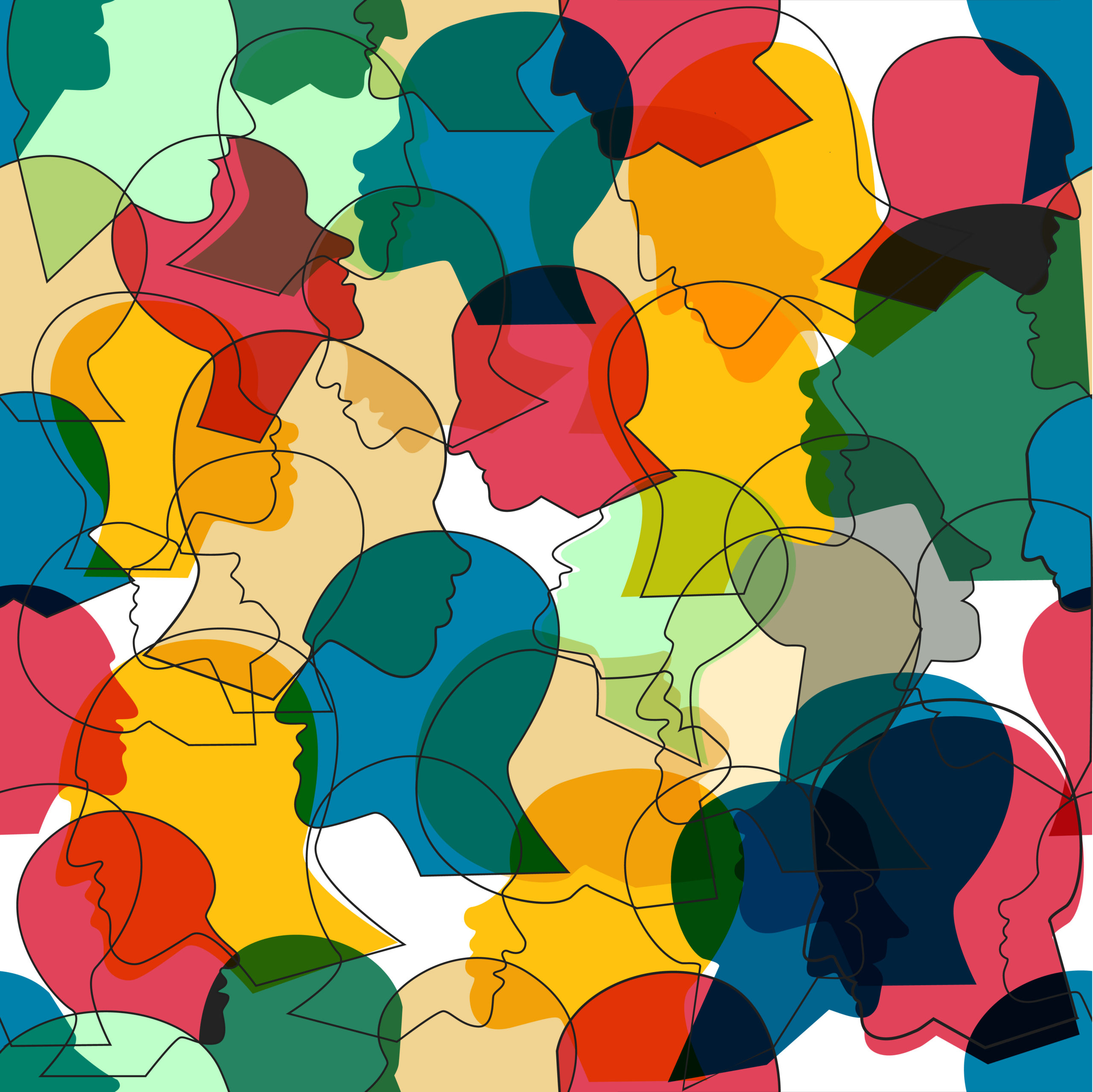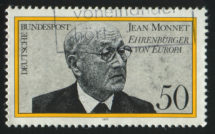

This is part of our special feature, European Arts, Culture, and Politics.
It is commonplace that Europe has constantly been and is still being shaped by migration; a fact which already accounts for its very beginning, if we think of the founding myth of the abducted Phoenician princess Europa, who was supposedly translated across the Mediterranean by Zeus in the shape of a bull. Migration can be considered the conditio sine qua non of Europe in the sense that Europe begins and flourishes exactly through its multilingual, multi-ethnic, and multi-cultural profile, which does not allow for one single language, one single nation, or one single religious conviction to dominate.
There are a large number of texts and other documents delivering the force and pain of migration, most of them simultaneously expressing relief at successful arrival and—hopefully—prosperous integration into the new society. But let us not forget those writers who do not fit into the classical schema of a “migrant writer” from outside Europe: writers with a European migrant background who through their work continuously reflect on the migrant condition of Europe. They are writers with a preeminently European identity, which neither by birth nor by languages can be restricted to one of its nations; writers who are used to moving between languages, nations and states, transgressing their borders and stressing their limits. And they are writers who experience their multiethnic, multilingual and multispatial identity as a great privilege very much conditioned by the EU—a privilege that is in no small part significantly attached to their high-level academic education. Their texts are less commonly considered in the work on migrant literature. Authors such as Aris Fioretos, Carolin Bergvall, or Uljana Wolf, are representatives of a new kind of postmigrational writing that reflects on migration as a condition of (not only today’s) Europe, using their manifold language and culture skills in playful but nevertheless critical ways. Their works may serve as examples for but a few of the many different approaches to the migrational condition of Europe we are facing now in contemporary writing. Though taking on different positions, all three of them aim at crossing the nation and reshaping Europe through different techniques of literary writing: Fioretos through narrative; Wolf through translation; and Bergvall through performance and participation.
Aris Fioretos: Crossing the nation, reshaping Europe through narrative
Aris Fioretos was born in 1960 in Gothenburg/Sweden to an Austrian mother and a Greek father. Being equally fluent in Swedish, German, English, and French, Fioretos studied in Stockholm, Paris/Sorbonne, and Yale, where he earned his PhD. He held positions at various universities in the US, in Germany, and in Sweden, and from 2003 to 2007 he was appointed as cultural counselor at the Swedish embassy in Berlin. By now, he has published fourteen books in Swedish (novels and essays), as well as a letter exchange with German poet Durs Grünbein in German, and several books and papers in academia, most of them composed in English. He is also an editor and a renowned translator from English (Nabokov, Auster), French (Derrida), and German (Hölderlin, Nelly Sachs). Den siste Greken (The last Greek, 2009) is Fioretos’ fifth novel. At first glance it seems rather conventional. For good reasons one might categorize it as so-called migrant literature, a genre of considerable popularity in contemporary narrative fiction. It can be read as a typical, factual story of a migrant worker, who left his small village in Greece in the 1960s for a new start at the opposite end of Europe, in Sweden. As a child, the author Fioretos witnessed such a new beginning in a fellow countryman of his father’s. He also uses a photograph of this person for the cover of his book, picturing a setting that is recalled to life in great detail at the exact middle of the story. But Fioretos is not, in fact, telling this man’s authentic story. He takes it as a starting point for a more general reflection on both: (1) the history and the memory of expulsion and migration throughout all of Europe, and (2) the ever-repeating structure of human existence founded in the model of the homo viator.
Fioretos’ novel spans several generations, and looks back on the forceful eviction of one million Greeks from Smyrna by Atatürk’s troops in 1922, and also on the Greek Civil War, which raged far beyond World War Two and drove many Greeks into political exile. Against this backdrop, it also depicts experiences from the third phase of widespread Greek migration in Europe in the twentieth century. The fulcrum of Fioretos’ novel is therefore centered not on Greece but on Sweden. The narrator himself clearly counts himself as a representative of the second generation of migrants from Greece, part of both realms and answerable to each.
The novel centers on Jannis Georgiadis, born during the Second World War in a remote mountain village in Macedonia. When he accrues a fatal gambling debt playing poker in the village as a young man, he takes that as incentive to leave and make a new start elsewhere in the world. He follows former classmates from school, the siblings Kostas and Efi, to Sweden. He finds work and starts a family, but despite the many changes remains at his core the man he always was. Jannis crafts his new life with patience and frugality, but he finds his world shattered when his Swedish wife leaves him for her great love––his own friend Kostas.
Decades later, shortly before his death, it is Kostas who writes down Jannis’ story in an attempt at “rehabilitation” (12). He jots down all he knows on a number of index cards, and leaves the box of them to his sister Efi. She then gives the material to the narrator of the book, because it was in the home of the narrator’s father that Jannis first stayed after arriving in Sweden. The narrator then reconstructs the story, and the book begins to retell the same story over and over in a number of concentric circles of ever new constellations.
It is crucial to the novel that we hear not only the story of Jannis, but also of several generations of women. While we follow the development of Jannis’ story on his way from Greece to Sweden, it is the women who emerge as the writers of history, and who keep up the memory of the different phases of Greek migration form Smyrna to Sweden. All of them are headstrong, modern women who stand in for the power of memory. At the end, it is Kostas’ sister Efi who together with other displaced women founds the project for compiling an “encyclopedia of Greeks abroad,” for which they research the histories of all the displaced Greeks. They call themselves the “Helpers of Klios,” in service to the muse of historiography. And they deliberately act across nations.
Fioretos’ novel is an artistic interweaving of human fates. It is a crossroads that Fioretos describes here, a decision to be made about defining oneself based on the past, or based on the future. “Humans consist of other humans” ––that is a fundamental insight of Fioretos’ protagonists. What Jannis learns from his grandmother Despina and encounters anew in his daughter Janoulla: that is what the novel sees as a universal insight it wants to impart on the reader. Yet, this story of life does not have a happy ending, for it is inextricably linked to war and displacement, civil war and desperate unrest in Europe.
Uljana Wolf: Crossing the nation through a translational mode of writing
Fioretos deliberately sticks to pure Swedish as the uncontested language of his writing even in the sites of his narration where he crosses several European regions and languages, and even though the author himself is fluent in all the languages related to the story. The poet Uljana Wolf, on the other hand, constantly calls the “purity law” of language into question, a law or principle that is highly valued, especially in Germany. Born in 1979 in Berlin, Wolf grew up in the years of change while Europe learned to overcome its East-West division. Referring to a common phrase as well as to the title of one of her own texts, Wolf is constantly labeled as someone specializing in “small border traffic,” i.e. someone who crosses the border between East and West, navigating between the Polish and German languages. One of the leading characteristics of her writing is bringing both languages together in her texts.
It is a strategy characteristic of her own writing from the very beginning. By using words from both her native languages––Polish and German––within one sentence and one text, Wolf aims at making visible the meanings and word associations evoked by both languages. She mirrors her own bi-lingualism as a way of communicating both languages within one speaker into one text. In doing so, she does not hesitate to ignore the “purity law” of language as she creates multilingual phrases, such as in the title of her first volume of poetry Kochanie ich habe Brot gekauft [Kochanie I bought bread] (2005). The titular “Kochanie” is a Polish term of endearment, similar to the English “honey” or “baby.” The volume is a love letter to both of the author’s languages, represented in the “bread” that sustains her. It made her the youngest ever recipient of the renowned Peter Huchel Prize for Poetry in 2005. Further volumes of poetry by Uljana Wolf went on to be titled falsche freunde [false friends] (2009) and Meine schönste Lengevitch [My most beautiful Lengevitch] (2013). In falsche freunde she insists on the importance of false friends––homophonic or near-homophonic words of different meanings in two languages, such as the English “brief” and the German “Brief” (letter), which she invites us to perceive as true friends in a new sense of “Brüderlichkeit.” Her working relation with her husband, American poet Christian Hawkey, brings a new transatlantic dimension into her texts, along with an additional intrusion of English words––but also an increased interest in translation, often in cooperation with Hawkey.
As an example of a more experimental way of challenging the borders between languages, nations, and identities with regards to the writing subject, we can turn to one particular translation project that Uljana Wolf undertook together with Christian Hawkey. It was based on an edition of Rainer Maria Rilke’s translation of Elizabeth Barret Browning’s Sonnets from the Portuguese from English into German, and resulted in an almost identical publication of the same book under the title Sonne from Ort – Ausstreichungen/Erasures in 2012. The love poems of the original Victorian author, written for her later husband Robert Browning, were written between 1845 and 1846, and first published in 1850. In Wolf’s and Hawkey’s postmigrational “remake,” they become object of a critical investigation of the genre and its European tradition.
Wolf’s and Hawkey’s editing of the English pseudo-translation of the Sonnets from the Portuguese by Barrett Browning and of their real translation into German by Rilke crosses male and female, author and translator, and never allows for clearly identifiable assignments of roles and identities. At the same time, each of them creates a new, meaningful text, which faces what has been lost in translation, but nevertheless stands on its own. It is the most extreme form of translational writing found with Wolf and Hawkey so far, who both had previously written translations of poems in different forms. The two multilingual poets Wolf and Hawkey present us with a remarkable attempt at performing this erasure of the loved one in a very classically constructed love discourse, i.e. the very foundation of the history of European sonnet poetry. They make visible new ways of presenting that love discourse precisely by re-defining and re-arranging the patterns of loss in their erasures.
Carolin Bergvall: Crossing borders of writing / talking / meaning in space and time
London-based Carolin Bergvall was born in 1962 in Hamburg to a French mother and a Norwegian father. She grew up in Switzerland, France, and Norway, as well as the United Kingdom and the United States. Like Fioretos, she also first studied at the Sorbonne in Paris before moving to England in 1989, where she earned a PhD at the Dartington College of Arts. Since 1996, she has published several books of poetry, translingual, translational, and conceptual writing.
Bergvall is a multilingual poet and multi-media artist who carefully exposes and explores the modalities of generating and perceiving language in all its dimensions, most often by delving into its historic depths. A good part of Bergvall’s œuvre so far deals with languages and texts from the Middle Ages, such as her experiments in exploring Old Norse and Old English sources as e.g. in her anthology Meddle English: New and Selected Texts (2011). In her much acclaimed project Drift (2012), which was conceived as a critical contribution to the fate of refugees crossing the Mediterranean sea, Bergvall follows the movement of languages and peoples through multilingual writing across the historical layers of English (with reference to the Old English elegy “The Seafarer”); the project was brought to the stage several times, and has also been published in various versions incorporating video, voice, and music performances, or even electronic texts and a “digital, algorithmic collage” made in collaboration with Thomas Köppel (Callicoon Fine Arts, New York 2015).
Like Uljana Wolf, Bergvall is also interested in translational writing. Focusing on the speakers themselves, Bergvall is more and more interested in experimenting with voice and sound. Many of her projects are performances that are no longer fixed in any form of a written text or a published book. Bergvall thus carves out the social practices of language, and their metamorphoses––as there is narrating and writing down, reading and discussing, talking and listening. The ways in which she represents these processes may at times be perceived as indistinguishable or even indecipherable sounds only. In the case of one of her most recent performances, Conference: After Attar (2018), we at the same time do and do not have a written text as the material base for working through the tradition of literary writing, and its transmission from Asia to Europe. Here Bergvall in a very literal sense relies on a famous text from medieval Persia, which found its way to Europe with contemporary travelers, or migrants: The Conference of Birds, a poem composed by Farid ud-din Attar at the end of 12th century (in 1177). The Persian title Manṭiq-uṭ-Ṭayr cites a well-known phrase in Qur’an, 27:16 “manṭiq al-ṭayr” (conversations of birds, Vogelgespräche). It is the passage where we learn about Solomon and David having been taught the language of the birds.
By turning back to medieval literature in the Conference: After Attar, Bergvall is very eager to reconnect with an enduring tradition of movement and migration which once became a leading if not decisive condition of transforming the medieval European world into Renaissance and Modernity. Europe as we know it––and as we praise it––is not conceivable without the influx of other cultures and languages, especially from the Middle East.
At first glance, the project resembles a popular format of public discussion between experts and a public audience included in the conversation. Bergvall invited conceptual artists, writers and scholars to a discussion on birds and on poetry as two closely connected ways of moving through space, time, and history:
Shadi Angelina Bazeghi (Iranian-Danish poet and translator), David Wallace (medievalist, [leading specialist for the work of Chaucer]), Geoff Sample (ornithologist and environmental sound artist), Clyde Ancarno (sociolinguist, interspecies research), Cherry Smyth (poet, art writer and curator) and Adam Chodzko (visual artist) as well as a recorded dawn chorus of birds and notably a Nightingale settled for the season at Stodmarsh.
“Set up ambisonically with sound artist Dan Scott” the “conference” slowly emerges as a less and less decipherable sound carpet of human and animal expressions, moving up and down while interweaving meaningful words and accompanying noises, human voices and birds chattering.
Conclusion
The task of “reshaping Europe” asks for experiments, for agency, for translating the experience of the migrational condition into a new cultural practice. Multilingualism, multiethnic backgrounds, and freedom of movement generate multifaceted models which tend towards transgression: they cross the borders of Europe’s nations and its languages, its genres and genders, and even the differences between its human and non-human voices.
Is this the turning point where migrant literature translates into postmigrational writing? A practice of writing from a post-position, when migration is accomplished, and when constant settlement, economical regeneration, and lingual, social and cultural integration have been achieved?
I would be inclined to say: no. On the contrary, postmigrational writing might be understood as a position where migration is not necessarily put in opposition to being at home, where integration is not necessarily the demand of the “receiving” society. Thus, it becomes the ultimate objective of the migrant individual. Postmigrational writing takes migration as the very basis of its projects. Postmigrational writing reflects on the migrational condition of Europe in a way that fundamentally acknowledges the multiplicity of Europe’s history, as well as the simultaneity of its languages and its beliefs. Postmigrational writing does not aim at overcoming migration, but rather elaborates on the enrichment attained through migration. In this understanding, postmigrational writing by definition crosses the nation; and it by definition crosses literary genres and conventional agreements regarding literary writing and storytelling. As migration so constantly shapes Europe, postmigrational writing cannot but refer to the very base of Europe’s traditions originating in many cultures. There is a considerable number of often highly educated postmigrational writers who are not clinging to the nation they belong, to their native language, or to the land where they are born. They perceive themselves as European rather than identifying with one single nation.
Christine Ivanovic is teaching and doing research at the Department of Comparative Literature of the University of Vienna. A native German she has been educated in Germany, while she has experienced the “migrant condition” within the protected space of academia. Due to her working and living in Japan, the United States and Austria for almost two decades she is very much interested in questioning Europe from a trans-European perspective.
Photo: Seamless pattern of a crowd of many different people profile heads. Vector background | Shutterstock
Published on April 28, 2020.




